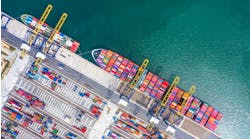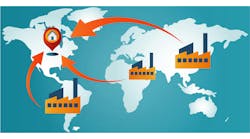The Puerto Rico Ports Authority (PRPA) has issued proposed regulation that would require all inbound cargo containers, regardless of the container’s country of origin, to be scanned for contraband, a requirement that, when combined with existing security checks performed by Customs and Border Protection (CBP), could result in significant supply chain delays and cost increases. The new regulation would, for the first time, apply to all companies, even those considered by CBP to be low-security risks.
“If implemented, the regulation would result in a significant new expense for U.S. companies shipping to Puerto Rico,” says Douglas J. Heffner, a partner in the Customs & Trade practice of the law firm Drinker, Biddle & Reath LLP (Washington). “It would likely also cause significant supply chain delays and open up the possibility that other states may adopt similar regulations that burden interstate commerce to raise revenue for the state.”
In its current form, the proposed PRPA regulation would require a scanning fee ranging from $58 to $70 per container (depending on the size of the container).
“The PRPA asserts that the proposed 100 percent scanning requirement is necessary to protect the health and safety of its citizens,” says Mr. Heffner. “Although protecting the safety of its citizens is a laudable goal of all governments, the PRPA's purported safety rationale for scanning 100 percent of all inbound containers—even from other states and regardless of the security profile of the shipper—is suspect because it requires the third party scanning company to pay the PRPA $10 per container scanned, which could result in millions of dollars of additional revenue for Puerto Rico.”
If the PRPA scanning regulation were to become the norm, Heffner believes, under the guise of health and safety claims, states could scan—and charge fees—for cargo containers originating in any other state.
“What would happen if, under the guise of protecting the health and safety of New York, the state of New York imposed a requirement that 100 percent of trucks carrying cargo originating in states outside of New York be scanned for contraband and charged a fee for each truck that was scanned?,” he asks. “The likely result would be that many states would adopt similar revenue raising schemes and interstate commerce would grind to a standstill.”


